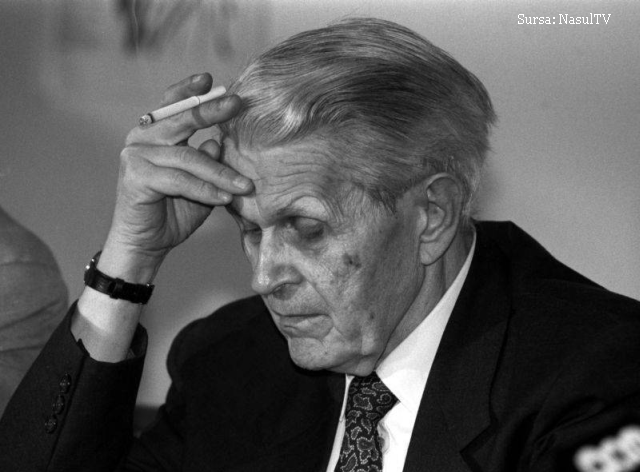100 Years Since the Birth of Corneliu Coposu
On May 20th we celebrate 100 years since the birth of Corneliu Coposu, the most prominent figure of the democratic opposition after the 1989 Revolution in Romania.

România Internațional, 20.05.2014, 13:56
It is impossible to measure the contribution of a politician to the reconstruction of Romanian democracy after the disaster of communist dictatorship. But nobody, not even his toughest opponents in the first years after the Revolution, such as the former communist official and then leftist president Ion Iliescu, would dare deny the major role played by Corneliu Coposu in changing the face of a maimed Romania. That son of Transylvania, devoted to monarchy, Greek-Catholicism and the National Peasants Party, he showed Romanians, shortly after 1990, when prejudices and ignorance were favored to wisdom and common sense, a special way of doing politics, a way in which betrayal, compromise and deals with values and principles had no place whatsoever.
17 years of detention in some of the most feared places on the Communist Gulag’s map did not manage to shake his faith in democracy and justice. In the 1980s, the toughest years of the Ceausescu dictatorship, he managed to affiliate the National Peasants’ Party, to which he added the Christian-Democratic component, to the family of European Christian — Democratic and Conservative parties, thus foiling the vigilance of the communist regime. After 1990 he promoted the Christian and Democratic National Peasant’s Party as leader of the opposition and established the Democratic Convention of Romania, which gathered all the parties and civic organizations which regarded the National Salvation Front and its leader, Ion Iliescu, as obstacles in the way of bringing Romania back to democracy. Corneliu Coposu is the one that invented the term ‘cripto-communist’, to define those politicians who had not given up on their habits as communist activists and who were opposing pluralism and the market economy.
For his merits, in 1995 he got the Officer of the Legion of Honour award, the highest distinction granted by France to foreign citizens. He died on November 11th, 1995, and his death triggered a huge wave of popular sympathy, which made a decisive contribution to the victory of the Democratic Convention in the parliamentary and presidential elections of 1996. Pundits, journalists and right wing supporters all agree that the errors made by governments ever since, the decline and break up of the Democratic Convention and the fall of the Christian and Democratic National Peasants’ Party into anonymity have all been possible because the politicians that followed could not live up to Coposu’s intelligence and political vision.
As for morality, any attempt at making comparisons would be indecent. From left to right, the Romanian political class is full of individuals interested in their own personal ambitions, to whom politics is just a means of getting rich and who have no problem in migrating from one party to another. At the end of an exceptional article she wrote when Corneliu Coposu died, journalist Tia Serbanescu wrote that quote “held in prison for so many years, Corneliu Coposu has now been arrested by Death”unquote and, along with him, a unique way of doing politics, based on honour and loyalty.






























